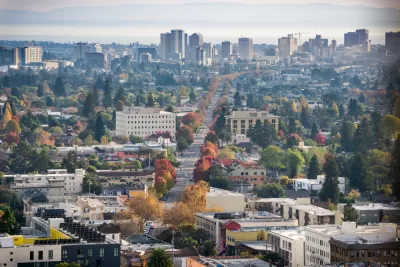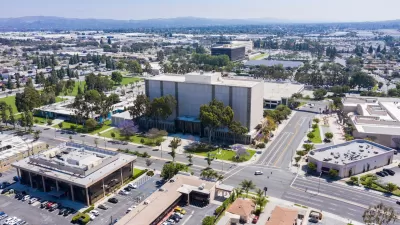Only four Bay Area cities have won the state’s approval for their housing elements, which are required to meet the state’s ambitious housing production targets.

With the January 31 deadline for having housing elements approved by the state come and gone, dozens of California cities will see some of their zoning codes voided under the formerly little-known ‘builder’s remedy’ law, which allows affordable housing projects to bypass local zoning laws.
According to an article by Jack Rogers in Globe St., of the 30 San Francisco Bay Area cities and counties to submit plans (out of 109), only four have had their plans approved by the Department of Housing and Community Development (HCD). “HCD made it clear that it will not rubber-stamp these housing plans when it notified Oakland this week that it has rejected the city’s plan—which exceeded the state’s 26K housing goal for the city by pledging to create 36K new housing units in Oakland.” The HCD rejected the plan, asking the city for proof that the sites it identified for potential affordable housing had a “realistic chance” of development. “The housing regulators also told the Oakland it would need to create a program to track the city’s progress in meeting its state-mandated housing goal, SiliconValley reported.”
The builder’s remedy is one consequence of California’s crackdown on cities that fail to create housing elements that meet the state’s targets for new housing construction, known as the Regional Housing Needs Assessment (RHNA). Cities without approved housing elements can also lose access to state funding sources. San Francisco, one of the four cities to have its plan approved, proposes rezoning that will permit 82,000 new homes in the city.
Already, attempts to use the builder’s remedy have faced legal opposition. A court decision that stalled a 500-unit San Francisco project last October could pave the way for similar actions from opponents of development.
FULL STORY: California Rejects Oakland Housing Plan, Most Bay Area Cities Failed to File

Planetizen Federal Action Tracker
A weekly monitor of how Trump’s orders and actions are impacting planners and planning in America.

USGS Water Science Centers Targeted for Closure
If their work is suspended, states could lose a valuable resource for monitoring, understanding, and managing water resources.

Congress Moves to End Reconnecting Communities and Related Grants
The House Transportation and Infrastructure Committee moved to rescind funding for the Neighborhood Equity and Access program, which funds highway removals, freeway caps, transit projects, pedestrian infrastructure, and more.

Poor Conditions in Mobile Home Parks Put Residents at Risk
Failing infrastructure, poor water and air quality, and predatory owners endanger the health of manufactured home residents, many of whom are elderly and low-income.

How Complete Streets Stands to Lose in the FY26 ‘Skinny Budget’
The President’s proposed budget could cut key resources for active transportation, public transit, and road safety programs.

Dairy Queen and Rural Third Places
Dozens of Dairy Queen restaurants across Texas are closing, taking a critical community space with them.
Urban Design for Planners 1: Software Tools
This six-course series explores essential urban design concepts using open source software and equips planners with the tools they need to participate fully in the urban design process.
Planning for Universal Design
Learn the tools for implementing Universal Design in planning regulations.
City of Moorpark
City of Tustin
Tyler Technologies
City of Astoria
Transportation Research & Education Center (TREC) at Portland State University
Chaddick Institute at DePaul University
Regional Transportation Commission of Southern Nevada
Toledo-Lucas County Plan Commissions





























